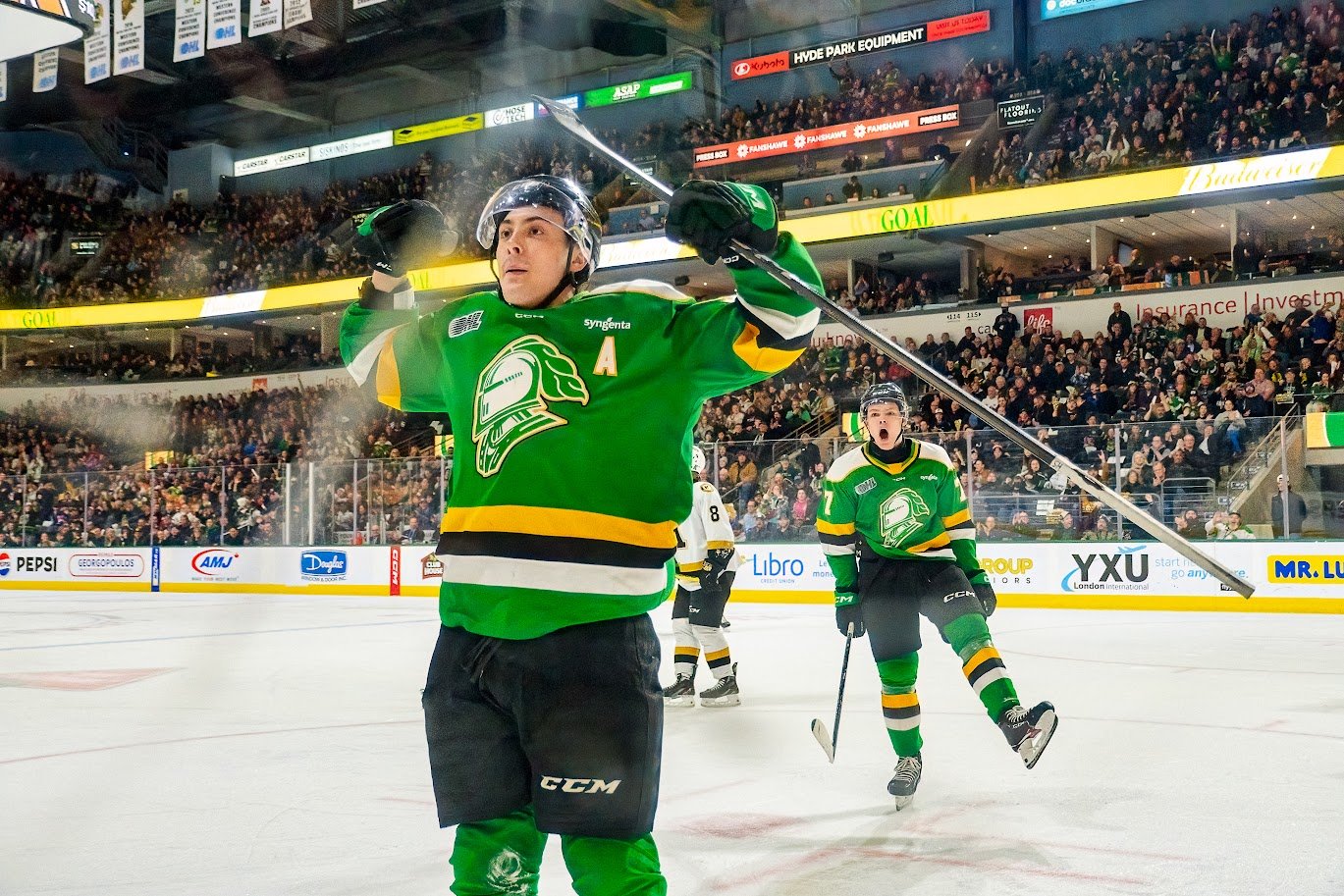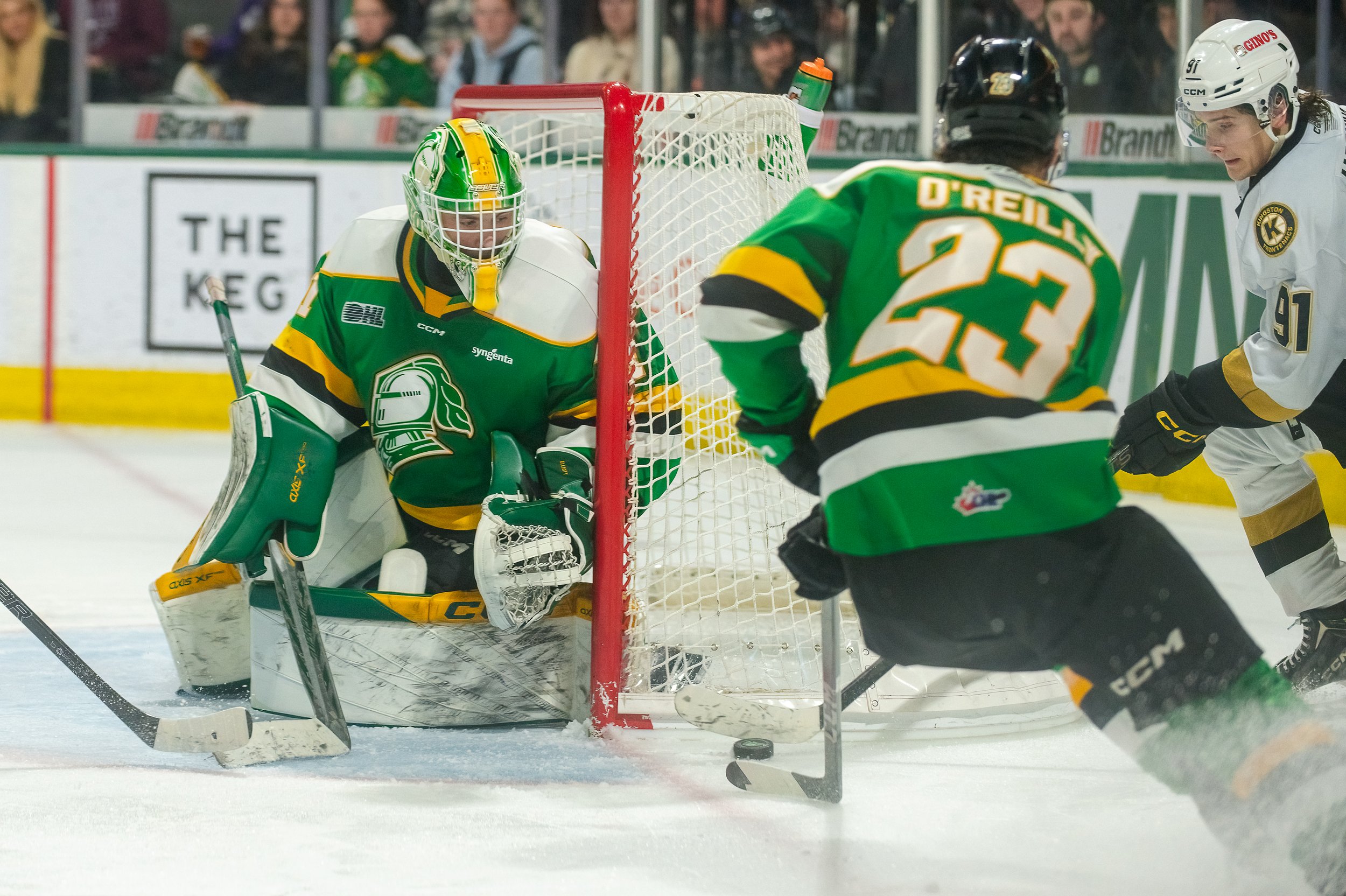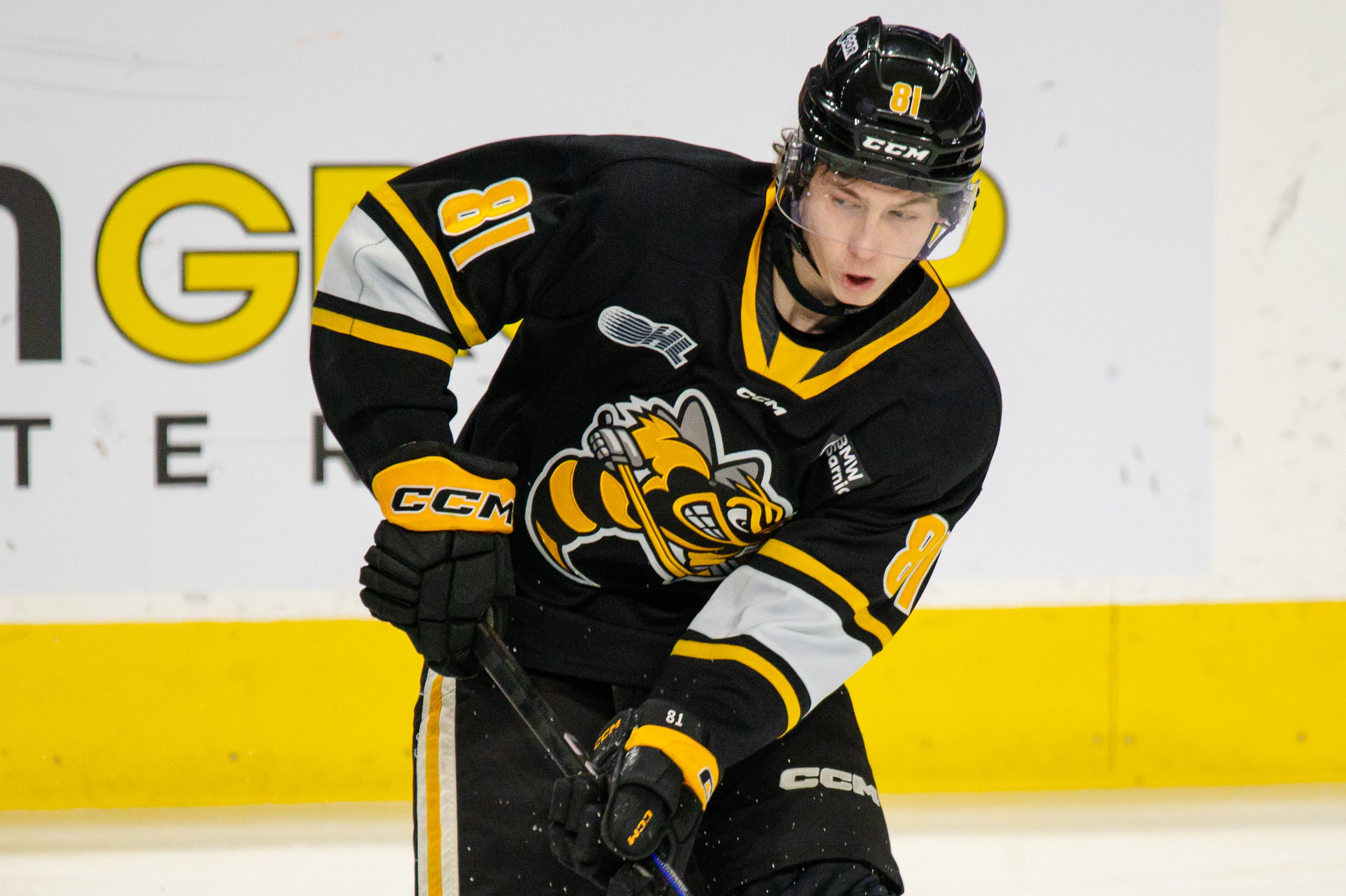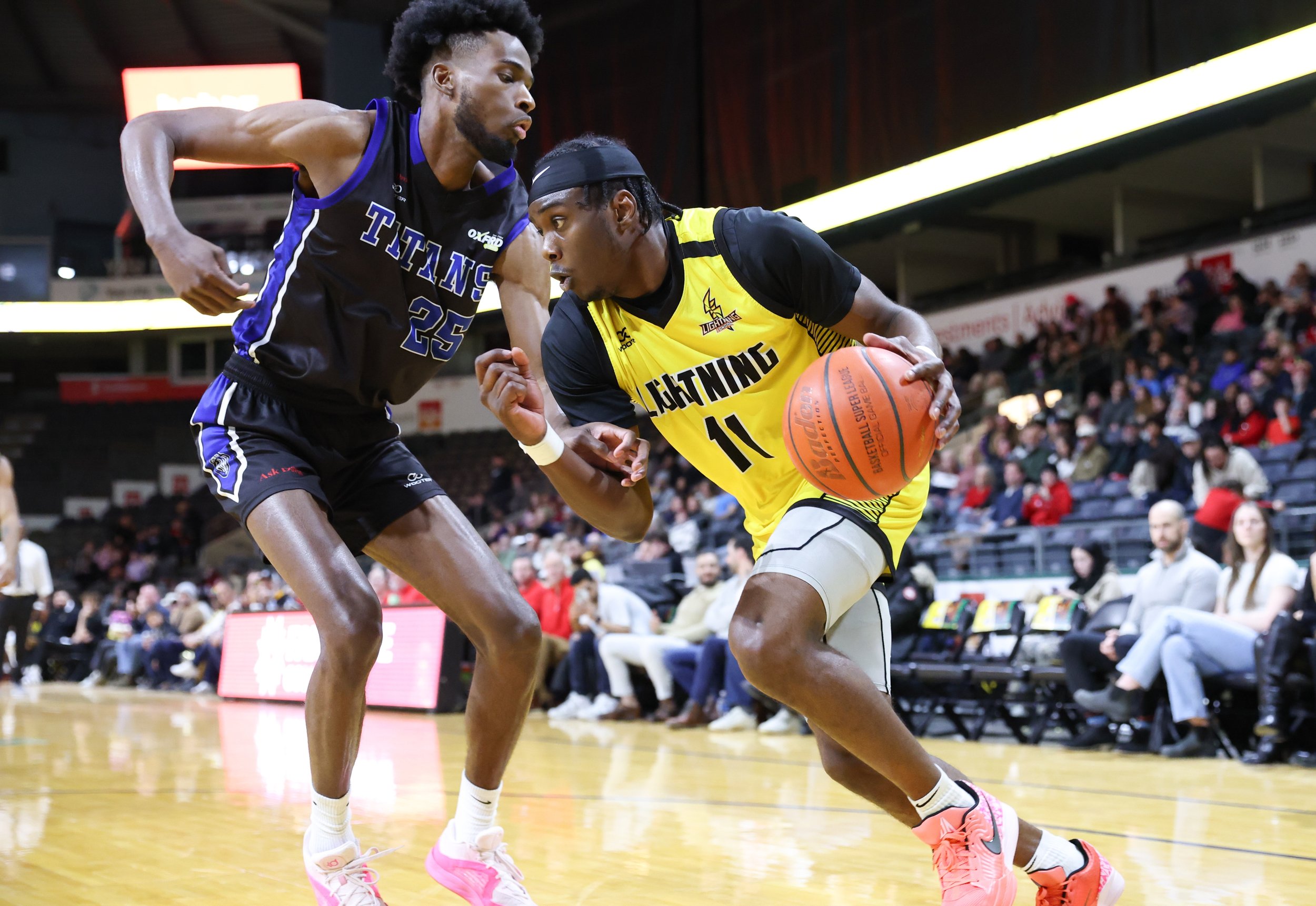D’Silva, Gould vie for spots on Lightning roster
There are no guarantee for BSL draft picks. The hope is that hard work and talent will win a roster spot. That’s the case for Kingslee D’Silva and Alontay Gould, who are hoping to stick with the London Lightning.
Kingslee D’Silva, a Canadian, was chosen sixth overall by the London Lightning in the 2024 BSL Draft.
* * *
Kingslee D’Silva never imagined that making it in the game would require him to become more Don Draper than Michael Jordan.
“You’re a product. You need to see yourself as a product. You need to say, ‘This is what I’m selling. This is what my skills are. These are my abilities. This is what I really do well,’” the forward said. “The problem for a lot of players is becoming the right product. It’s totally different from everything you thought of when you were in high school or college. What coaches want is totally different.”
Last month, the London Lightning selected D’Silva (No. 6) and guard Alontay Gould (No. 13) in the BSL Draft. Among 18 players selected, D’Silva and Gould look to join Lightning camp next week (Nov. 11) to compete for a spot on head coach Jerry Williams’ roster.
Like all draftees in the league, nothing is guaranteed. Instead, each player will roll into training camp looking to sell himself to coaches and teammates in hopes of making a lasting impression and earning a spot on the roster.
* * *
D’Silva is a Canadian product of the game: Sheridan College. University of Guelph. George Brown College.
“My story is mostly trying to be the best player I can be. College was a big part of that,” said the Mississauga native. “In those four or five years you get in college, you try to develop every year. During those years, I saw my captains, players who I knew, who finished their five years, and after that their games were nearly flawless. They had no more weakness. I wanted to be that. When I left school, I didn’t want any questions about my offense, my defense. I wanted to be a complete player. That was my thing.”
In 2019-20, D’Silva led George Brown to its first OCAA championship in 44 years. In the final, he tallied a game-high 20 points, 13 rebounds, three blocks and a steal against Humber, being named MVP of the three-day tournament.
As his eyes turned to a professional career, he started to understand the importance of selling himself.
“I was always gunning for the next level. For players like me, when you’re 6-5 or 6-6, and you’re athletic, you’re so close to the next level. It’s not far-fetched. Every time you turn on the TV, you see a player who looks exactly like you making millions of dollars. It gets your attention.”
Due to the fact he was at a smaller university in a smaller division, D’Silva struggled to get noticed by professional teams overseas. During his three weeks at EuroProBasket in September 2021, however, he showed he could play at the European professional level and signed a contract to play in Portugal.
His struggle to be seen highlights a barrier for Canadian players.
“It’s not an easy way to make a living,” D’Silva said. “But when I was in Portugal, playing well, in the playoffs, the arena is packed, you’re like, ‘Oh, this is totally worth it.’ When you’re in a gym and there’s 1,000 people going crazy when you’re scoring, and you help your team win, and you hit big shots, you realize everything you’ve been through is worth it for that moment.”
The primary difference between Ontario College Athletic Association (OCAA) and USPORTS, D’Silva believes, lies in the level of commitment facilitated by available resources. In USPORTS, athletes have access to facilities where they can train daily, which increases their practice time and allows them to play more games. For example, Carleton University’s basketball program reportedly trained for nearly 10 months a year, providing athletes with consistent development opportunities.
While many OCAA players possess exceptional natural talent, various factors, such as academic requirements or financial limitations, prevent them from attending larger universities where they can fully showcase their abilities. Despite these limitations, OCAA teams often include standout players with impressive skills.
What those players need, however, is exposure. That’s less of a challenge today when the Canadian game has grown in prominence and respect.
“The talent level in the Canadian game has just grown so much.” D’Silva said. “We’re in an era where you can stay at home and do a lot. In these next four or five years, you’re going to see somebody who stays at home, goes to school here, plays USPORTS, and gets drafted to the NBA. The talent pool is enough where guys go to prep schools, play USPORTS at least a decent level of competition and actually do that here.”
* * *
Alontay Gould loves to talk. Joyful. Outgoing. Goofy, even. He has the personality of someone who realizes what a blessing it is to be paid to play a game he loves so much.
“You get around me and I act like I’ve known you forever, giving that energy I’ve always had,” he laughed. “I was that little kid who was just goofy. I wouldn’t stop moving, wouldn’t stop talking.”
His grandma introduced him to the game when he was 9 or 10 years old, taking him to the YMCA to play, and perhaps to burn off a bit of that energy. As he grew, he played football, baseball, and ran cross country and track, all alongside basketball.
Being smaller, he learned to play the game a certain way, with speed, defense, passing, and a lot of talking.
“Grandma was just trying to put me in anything that could keep me out of the streets, as a lot of things were going on around my environment. That was a big thing, and I appreciate her a lot for that. That situation wasn’t so easy for us, but she did as much as she could for me just to make sure I got everything I needed, to get where I am now, honestly.”
Starting at Owens Community College, followed by Bryant & Stratton College (Ohio), Gould was a standout player.
“It took me for a whirlwind. There are still a lot of emotions with that,” he said.
A TBL combine threw him a lifeline after his college year was cut short. The Rockwall (Texas) 7ers drafted him, but the team was still a year away from operation.
“I basically committed to them and spent that year working out, focusing on my body, and then started my pro career from there,” he explained of a TBL career that has taken him to Lebanon, Ind., and Toledo, Ohio. “It hasn’t always been perfect. Professional ball has been up and down everywhere with a few different experiences.”
* * *
Most of the hustle in this game takes place off the court.
Sure, if you play a standout game in Division I, pro teams will call you. You’re at the highest level. It’s easy to get noticed. Below that, however, it’s about being seen. You’re just trying to go to workouts, draft combines, anywhere you can get your game in front of agents, owners, and coaches.
That means combines and camps across the country and around the world, wherever opportunity calls, like the BSL Combine and Draft in Windsor last month.
“You’re kind of on your own,” D’Silva said. “You’re trying to throw as much of yourself out there as you can. To be successful, you really need to believe in your craft.”
To make real money in international basketball, scoring is essential. While coaches emphasize fitting into roles, when you’re an import on a team – one they’ve invested in for your housing, visa, and travel – they expect you to deliver, especially in tight situations. Typically, that means playing solid defense and putting up points. You might score 25, and they’ll still expect more. Ultimately, you’re selling yourself as a player who can impact the game both offensively and defensively.
D’Silva continued, “The underlying thing is that you’re trying to show your strengths in a short period of time. You can’t do too much. You don’t want to look at the hog. You just play to your strengths and be the best you can. You gotta really be as professional as possible and do the best you can in that timeframe that you’re there. It’s a real balance.”
For Gould, the hustle is about fulfilling a dream.
“This is the only thing I ever wanted. This is what I dreamed of. This is what I told my parents about when they asked me, why do you want to keep doing this or why I’m spending all this money on this. This is the reason why. This is the dream – and not too many get a chance to do it. This is a very selective field. I don’t just want to be here playing basketball. I want to be able to stay in the game and make my name known.”
* * *
Both D’Silva and Gould hope to make the Forest City a permanent stop.
D’Silva, a 6-foot-5 forward, is a recognizable talent for Williams, who was selected as the Newfoundland Rogues’ first pick (No. 4) in the inaugural BSL Draft in 2023. The forward, however, did not make the squad’s final cut out of training camp.
“My goals are simple: I’m hoping to get picked up and signed. That would be great,” he said. “For me, I can do a lot of things that I couldn’t show in the camps. You play for six minutes with guys you don’t know. You just survive. Being drafted, I can show them that I can shoot the ball and play defense, and they can pick me up for the roster.”
Last time Gould was in the Forest City, he dropped 20 points, alongside 10 rebounds and three assists, as a member of the Glass City Wranglers in a 127-95 loss to the Lightning March 10 at The Bud (now Canada Life Place). That game made as much of an impression on him as he did on the Lightning faithful.
“I walked into that arena, and I was like, ‘Yo, am I in the NBA right now?’ You get a chance to see that kind of atmosphere, and it brings out the best in you. Honestly, for me, it was almost like an audition. I went out, showed my talent, and showed I can play on this level.”
His next several days in London will be focused on the simple goal of continuing.
“I’m here to learn. This team already is established. It’s not like a TBL team where maybe they need a guy to come in and do everything I can do. In London, it’s about just coming in and playing a role. Whatever role the team needs, I’m here. Need me to handle the ball? I am here. Need me to play off the ball and make people’s job easier? I am here. Need me to score? Need me to come in and defend? Need me to come in and be a great teammate? I am here. I am not above anything. I am coming in and trying to soak up as much as I can while also bringing my niche to it, as well.”
He continued, “For me as a player, honestly, I just want to go to the highest level I can get, wherever that may see fit. I also understand my journey is a little different than others. I understand if I keep doing what I’m doing and keep working and keep continuing to get better and working on my game, I don’t see why I can’t go further with this. I’m always striving for the highest I can get in the sport. I feel like every basketball player should.”














Billy White, the long-time versatile veteran, is one of only three Lightning players left from the opening night roster. The former MVP has been a consistent presence — and he’s stepped up his game down the stretch.